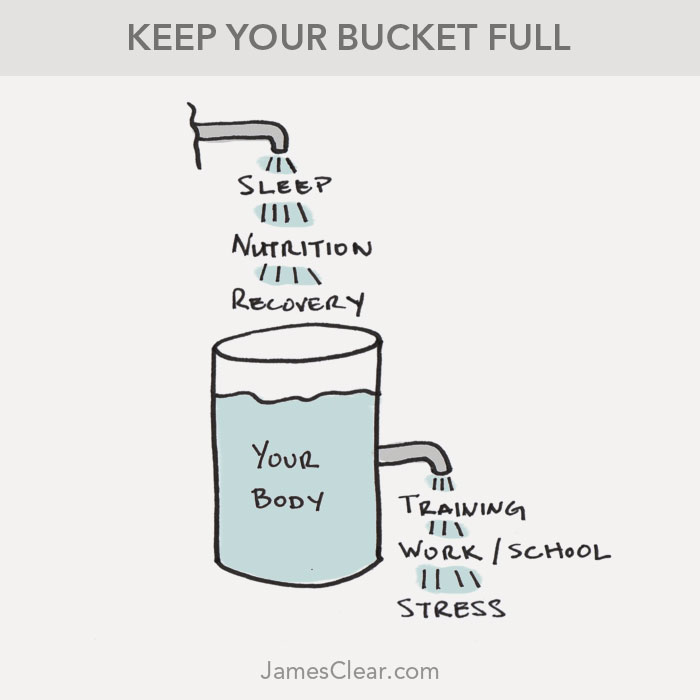
Imagine that your health and energy are a bucket of water. In your day-to-day life, there are things that fill your bucket up. Sleep is one of the main inputs. These are also things like nutrition, meditation, stretching, laughter, and other forms of recovery.
There are also forces that drain the water from your bucket. These are outputs like lifting weights or running, stress from work or school, relationship problems, or other forms of stress and anxiety.
Learn how to sleep better by mastering the theory of cumulative stress.
The forces that drain your bucket aren't all negative, of course. To live a productive life, it can be important to have some of those things flowing out of your bucket. Working hard in the gym, at school, or at the office allows you to produce something of value. But even positive outputs are still outputs and they drain your energy accordingly.
These outputs are cumulative. Even a little leak can result in significant water loss over time.
Keeping Your Bucket Full
If you want to keep your bucket full, you have two options.
Refill your bucket on a regular basis. That means making time for sleep and recovery.
Let the stressors in your life accumulate and drain your bucket. Once you hit empty, your body will force you to rest through injury and illness.
Recovery is not negotiable. You can either make time to rest and rejuvenate now or make time to be sick and injured later. Keep your bucket full.
Ok, But Can You Catch Up on Sleep?
Extra sleep can remedy some of the negative effects of several bad nights of sleep. New research found that catching up on sleep on the weekends brought daytime sleepiness and inflammation levels back to baseline; however, cognitive performance did NOT rebound.
What exactly does that mean?
If you're not getting enough sleep during the week, you cannot depend on catch-up sleep on the weekends to restore your focus and attention. The only way to keep levels of those performance measures high is to make sure you're getting adequate sleep every night.
Now does this mean you shouldn't even try to catch up on sleep?
No. If you're already sleep deprived, you should definitely try to get some extra sleep. But the best thing to do, both for immediate performance and for the long-term, is to prioritize sleep every night—not just on the weekends.